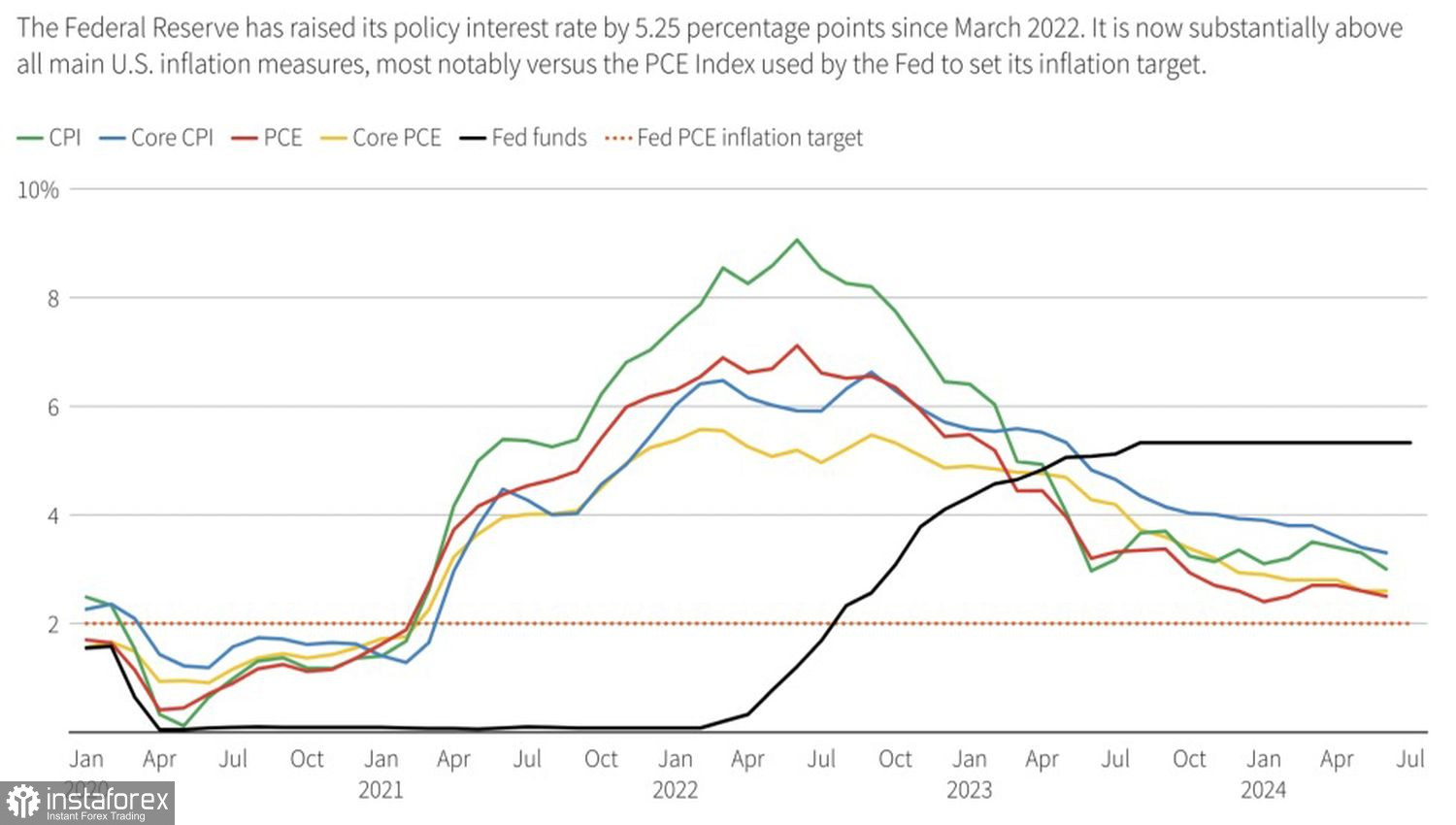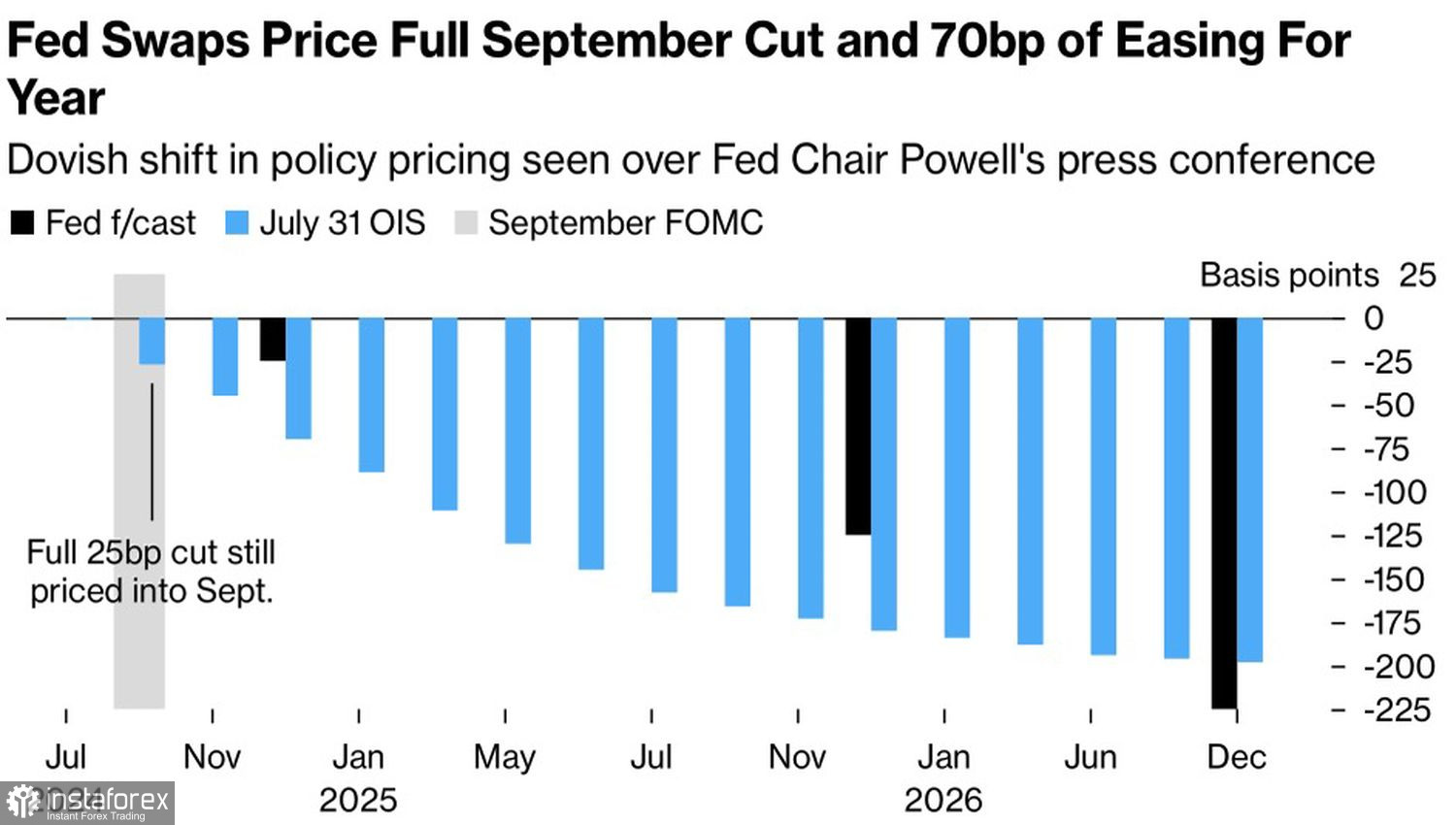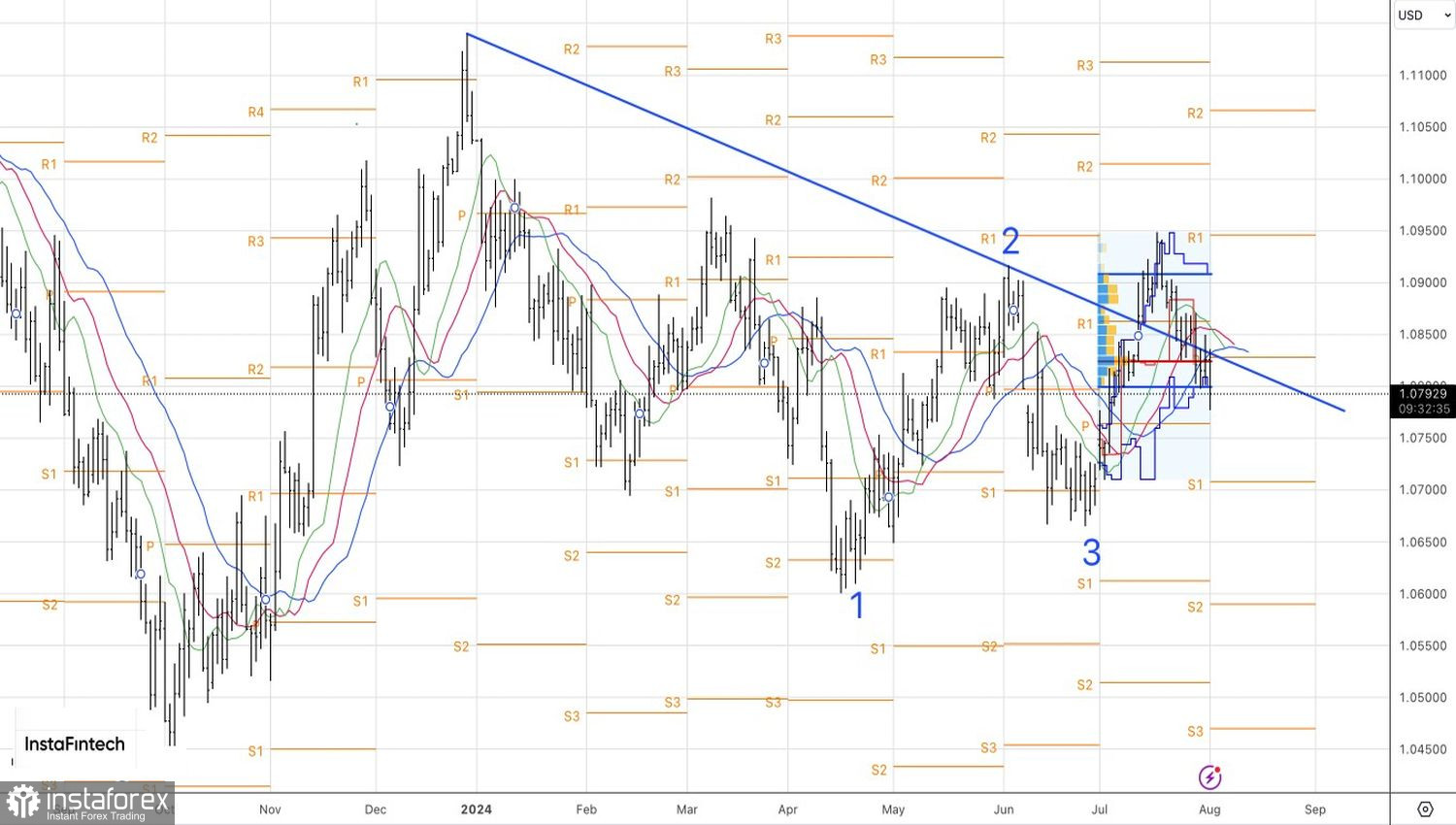The market has taken wishful thinking for reality. Yes, the FOMC's accompanying statement and Federal Reserve Chair Jerome Powell's speech at the press conference contained many hints at easing the Fed's monetary policy in September. However, all decisions will be data-dependent. Against this backdrop, the confidence in derivatives in three acts of rate cuts by the end of 2024 seems excessive. If so, the U.S. dollar has a good chance of a comeback.
Dynamics of the Fed rate and U.S. inflation

Powell indicated that the FOMC considered lowering rates during the July meeting, but the overwhelming majority of officials thought it best to leave everything as it is. The U.S. economy is in a good place in terms of inflation and unemployment, and the development of disinflationary processes and further cooling of the labor market will open the door for monetary policy easing. This issue could be on the table again at the Fed's next meeting in September.
The Fed chair mentioned that he can imagine a scenario where rates remain at their current level and another scenario involving several cuts by the end of the year. Which one will come to fruition will depend on the data. In this regard, the July U.S. employment data could be decisive and significantly impact EUR/USD.
Futures tied to the Fed's policy rate showed investors pricing in an 87% chance of a September 25 basis-point cut and a 13% chance it will fall by 50 basis points. Derivatives have increased the expected scale of the Fed's monetary easing in 2024 from 64 to 70 basis points. According to Nordea Markets, three cuts are possible either in the case of excessively rapid growth in unemployment or if the U.S. economy plunges into a recession. Both scenarios seem unlikely under current conditions, so the company believes market forecasts are overestimated.
Market forecasts for the federal funds rate

As a result, there is a sense of deja vu. Just as the U.S. dollar rose after dispelling illusions about a Fed rate cut at six FOMC meetings earlier in the year, it is rising again after the July meeting. Investors were already confident that the Fed would start a cycle of monetary policy easing in September, buying EUR/USD on the expectations of extreme scenarios, including aggressive or early rate cuts.

Undoubtedly, the U.S. employment data will provide plenty of food for thought and could change a lot. Still, the major currency pair's reluctance to rise on good news and quick sell-offs on insignificant news suggest that the market does not want to sell the U.S. dollar.
Technically, on the daily chart, EUR/USD is returning below the trendline, which indicates the bulls' weakness. It makes sense to consider buying only if the price rises above 1.0800 and 1.0825. For now, we are focusing on selling.
 English
English 
 Русский
Русский Bahasa Indonesia
Bahasa Indonesia Bahasa Malay
Bahasa Malay ไทย
ไทย Español
Español Deutsch
Deutsch Български
Български Français
Français Tiếng Việt
Tiếng Việt 中文
中文 বাংলা
বাংলা हिन्दी
हिन्दी Čeština
Čeština Українська
Українська Română
Română

